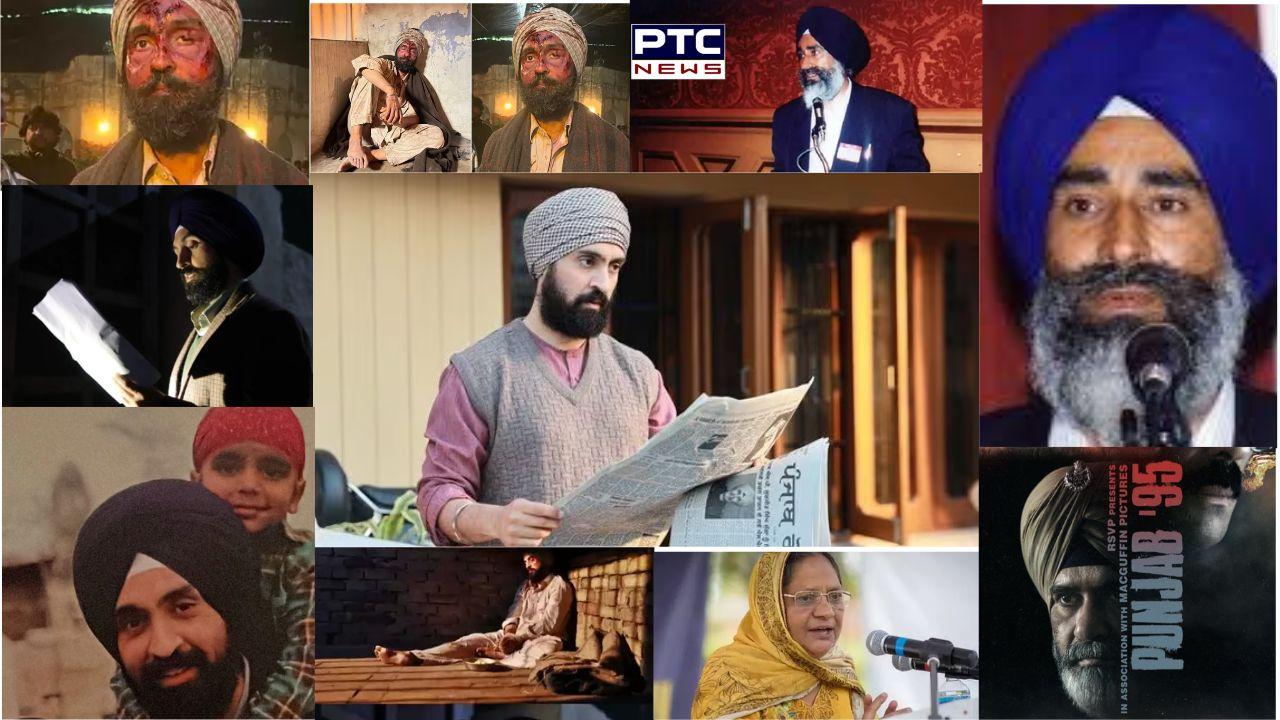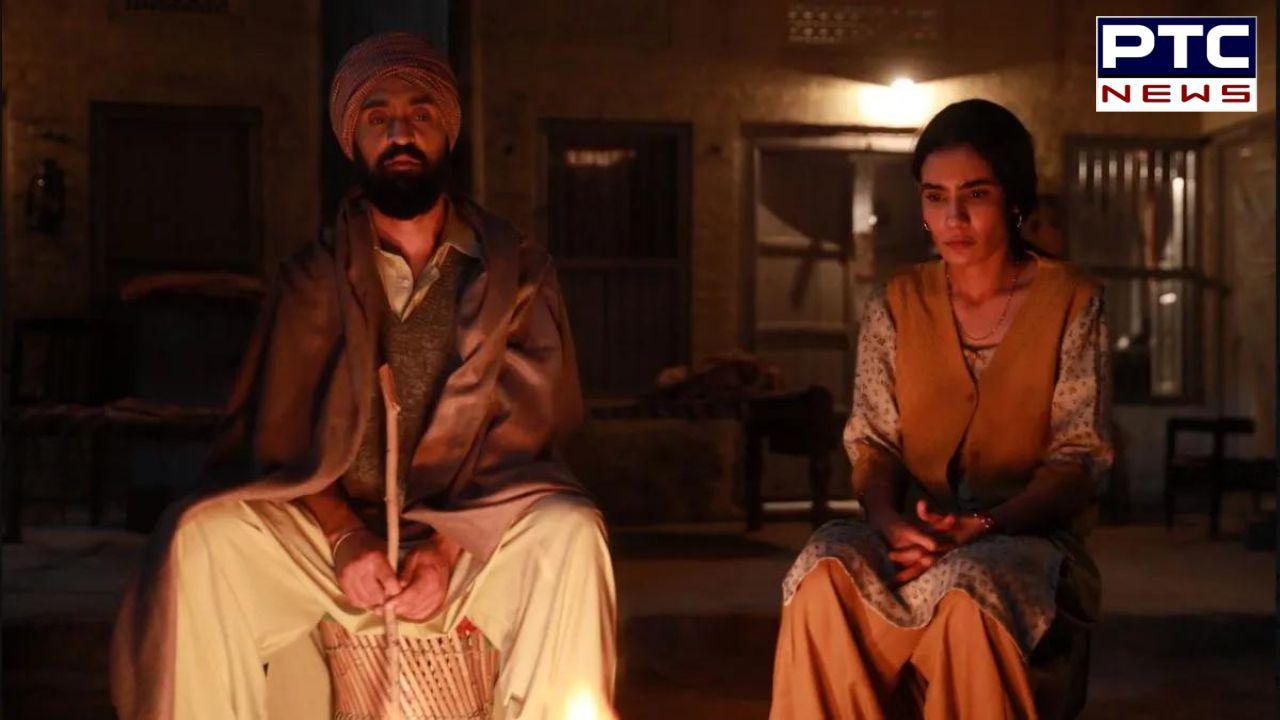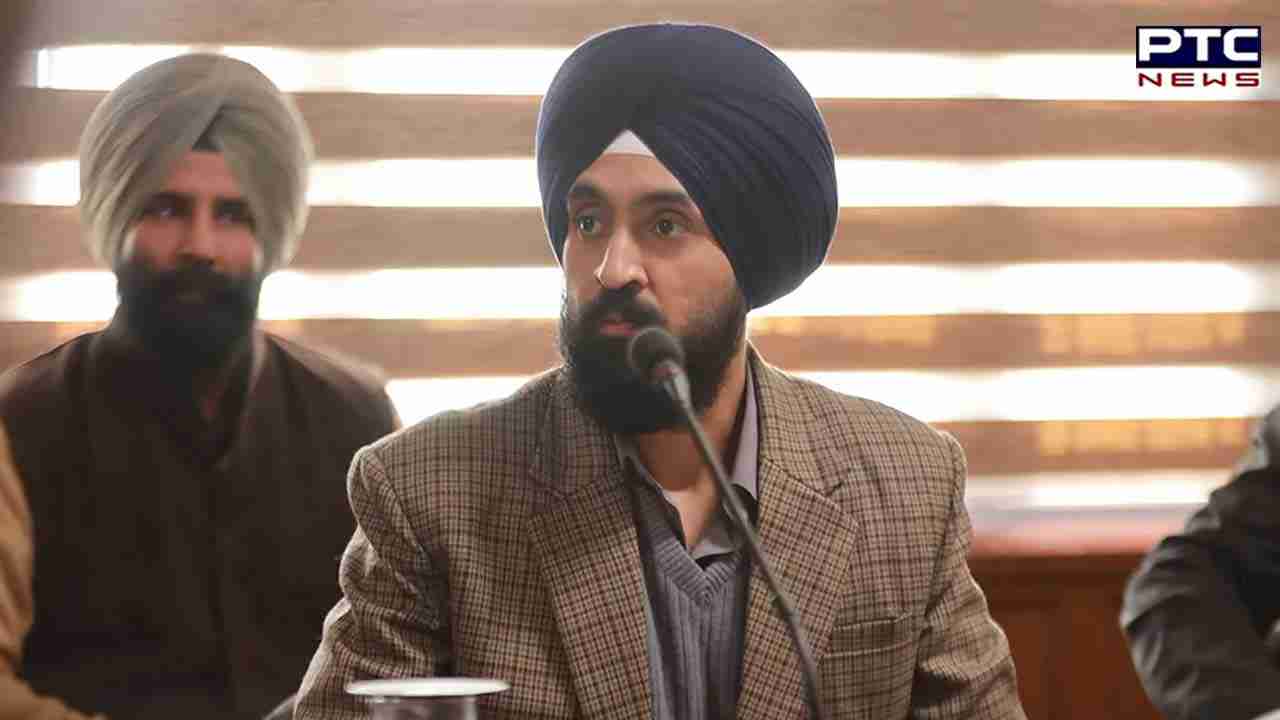

Punjabi singer Diljit Dosanjh’s film ‘Punjab-95’ not to hit Indian theatres amid censorship controversy
PTC Web Desk: The much-anticipated film 'Punjab-95', based on the life of Sikh human rights activist Jaswant Singh Khalra, will not release in Indian cinemas. Directed by Honey Trehan and starring Diljit Dosanjh, the film sheds light on the atrocities committed against Sikhs during the 1980s and 1990s in Punjab. The decision comes after the Central Board of Film Certification (CBFC) demanded over 120 cuts, a move firmly opposed by the filmmakers and Khalra’s family.
The CBFC raised objections to several aspects of the film, citing potential to hurt sentiments and disrupt harmony. The board sought changes in scenes that mentioned Punjab, specifically Tarn Taran Sahib, references to Canada and the UK, and the film’s title, 'Punjab-95'. The title alludes to the year 1995, when Jaswant Singh Khalra disappeared under mysterious circumstances. The CBFC demanded the removal of Gurbani references and even proposed altering Khalra's name in the film.
_4abbd5cee3a0f293cbb8d1286d8eb2fc_1280X720.webp)
Despite the pressure, the filmmakers, supported by Khalra’s family, refused to comply with the board’s demands, following which it will not be hitting Indian cinemas, at least for now.
While Indian audiences will miss the opportunity to watch 'Punjab-95' in theatres, the film is set for release in countries like Australia, the UK, Canada, and the United States on February 7. On social media, Diljit Dosanjh announced the release date with the caption “Full movie, no cuts,” indicating that the film will be presented as originally intended.
Paramjit Kaur Khalra, the wife of Jaswant Singh Khalra, has been vocal against the CBFC's demands, describing them unjust. She said the film was an accurate biopic based on her husband’s life, created with her family’s consent. According to her, the filmmakers spent four years carefully crafting the script, ensuring it was both truthful and respectful.

Who was Jaswant Singh Khalra?
Jaswant Singh Khalra was a renowned human rights activist who exposed grave injustices against Sikhs in Punjab during the 1980s and 1990s. His investigations revealed the illegal detention and extrajudicial killings of thousands of Sikh youth. Khalra discovered that many of these victims were cremated secretly in Punjab’s crematoriums, with over 6,000 bodies recorded in Amritsar alone.
Khalra’s findings reached international forums, prompting widespread scrutiny of India’s human rights record. However, his relentless pursuit of justice came at a grave cost. On September 6, 1995, Khalra was abducted from his home while washing his car. His family alleged that he was tortured and killed in police custody. His body was later found in the Sutlej on October 27, 1995.

Despite initial resistance from the authorities, Khalra’s widow, Paramjit Kaur, fought tirelessly for justice. The Supreme Court eventually directed the Central Bureau of Investigation (CBI) to probe the case. The investigation implicated six police officials, who were convicted and sentenced to seven years in prison. Four of them later had their sentences upgraded to life imprisonment by the High Court.
- PTC NEWS
